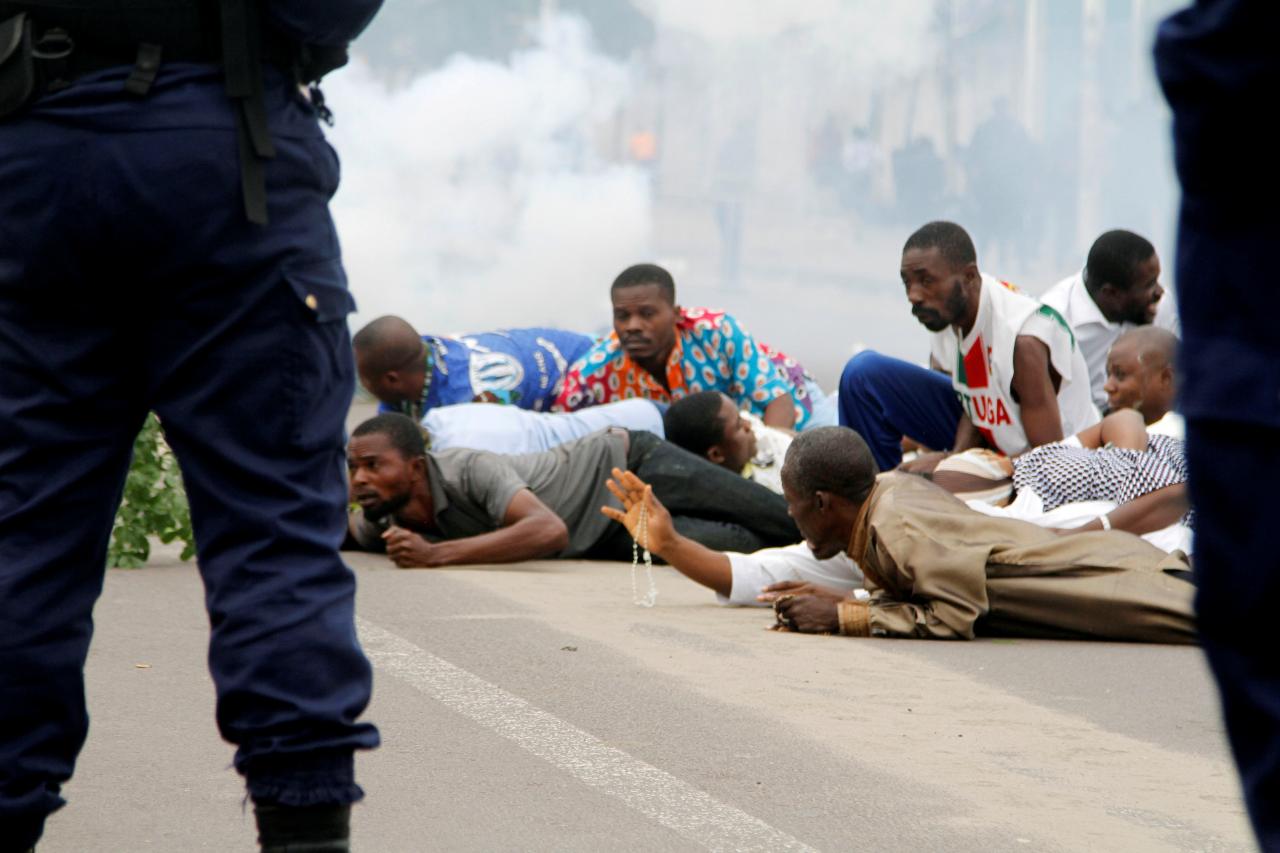
Congo’s Kabila denies violence against protesters

Congolese President Joseph Kabila has rejected charges that his forces had violently broken up pro-democracy protests, stirred by his refusal to step down at the end of his mandate.
Kabila accused demonstrators of arson and attacking the police after a week of simmering unrest following the shooting of protesting churchgoers in the capital, Kinshasa.
“I am not (and) … will never be against peaceful protests by political parties. But (not) if a political demonstration is intended to burn, kill police … incinerate things,” Kabila told journalists in the presidential palace in Kinshasa.
Kabila, who has been in power since his father was shot dead in office in 2001, has denied his opponents’ charges that he is simply aiming to cling on to power for as long as he can.
Scores of people have been killed in the past year in protests, organized by the Catholic Church, against Kabila’s refusal to step down in December 2016, and delays in calling new elections.
At least six people were shot dead by security forces and dozens wounded recently when they broke up a protest by churchgoers in the capital.
The rising tide of protests has drawn condemnation from Western powers, including France, Britain, the United States and former colonial master Belgium.

Under a deal mediated by the church between Kabila and his opponents, the president was to step down at the end of last year, paving the way for an election early this year.
But he reneged on the deal and elections will not take place until the end of 2018, at the earliest.
Kabila’s opponents suspect him of seeking a referendum to change Congo’s constitution to enable him to run for more than two terms, as the leaders of neighboring Uganda, Rwanda and Congo Republic have.
“I have not seen anywhere in CENI’s (the national electoral commission‘s) calendar where the organization of the referendum is planned,” Kabila said, when asked about it. He also said elections would cost $1.2 billion, which he complained was “exorbitant”.
Kabila’s refusal to step down has emboldened armed rebel groups, raising the prospect of the vast, mineral-rich nation sliding back into the wars that killed millions of people in the 1990s, mostly from hunger and disease.






